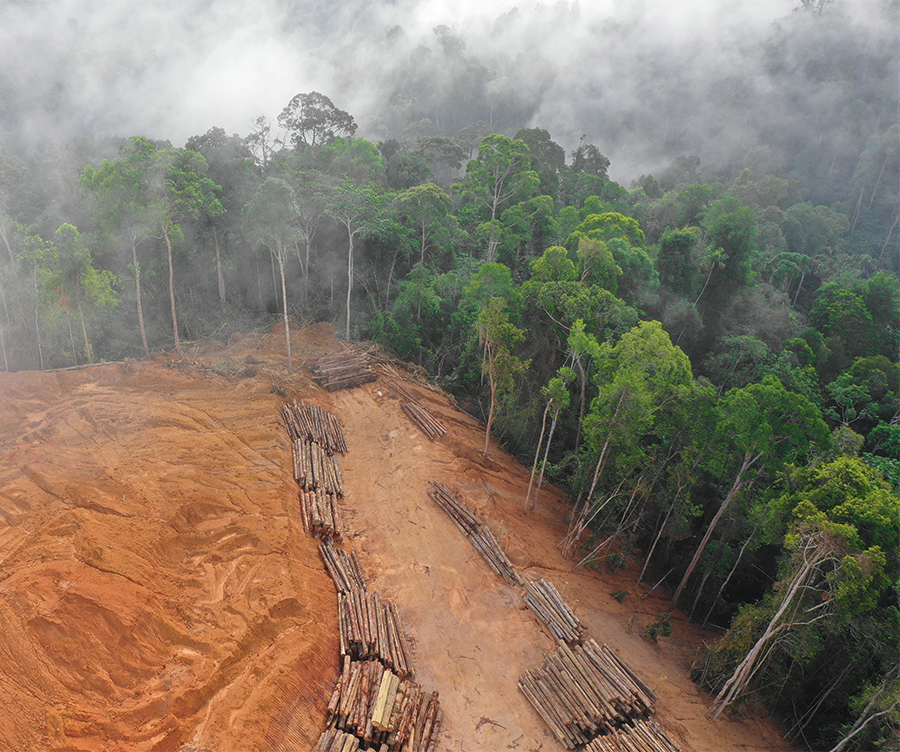BNP Paribas has announced plans to cut financing to companies involved in Brazilian deforestation, though investigative campaign groups say the commitment is “weak” and lacking in urgency.
According to a statement issued by the bank on February 15, financial products or services will only be provided to companies that have a strategy to achieve zero deforestation. The strategy must be in place by 2025, and be effective across their production and supply chains.
The measure targets producers and traders active in Brazil’s Amazon and Cerrado regions, and follows stinging criticism from environmental groups over BNP Paribas’ role in supporting destructive beef and soy production.
“Financial institutions exposed to the agricultural sector in Brazil must contribute to this fight against deforestation,” the statement says. “This is the case for BNP Paribas, which is one of the foreign banks present in the country and which has certain international customers, producers or dealers who are directly concerned.”
In the Amazon rainforest, companies operating on land that was cleared or converted after 2008 will not be able to access financing from BNP Paribas, it says.
In the Cerrado, further south, the bank says it will encourage clients not to produce or buy beef or soy from land cleared after January 1 last year.
Full traceability of both products will be required by 2025, it says, and the bank will “encourage” its customers to work towards zero deforestation and improve transparency in doing so. It follows nearly a year of internal work.
“BNP Paribas is committed to encouraging its customers to become ’zero deforestation ‘, and now imposes demanding traceability criteria on companies wishing to benefit from its financial services,” adds head of corporate engagement Antoine Sire. “This policy is a first on the part of a major international bank.”
However, Global Witness – an investigative campaign group that has heavily criticised the role of international banks in supporting Amazon deforestation – argues that the bank has already failed to meet earlier environmental commitments.
“Its latest announcement is yet another weak and ineffective voluntary policy – all style and no substance,” says Jo Blackman, the organisation’s head of forests policy and advocacy.
“The bank has only committed to ‘encourage’ its customers producing or buying beef or soy from the Amazon and the Cerrado in Brazil to become ‘zero deforestation’ and it uses inconsistent approaches when it comes to the two vital ecosystems.”
Blackman adds that by giving clients until 2025 before their supply chains are fully traceable, BNP Paribas will likely be unable to carry out due diligence on those companies’ links in the immediate future.
“Rampant global deforestation and the climate and biodiversity crisis it is contributing to must be urgently addressed now, not in five years’ times,” she adds.
Global Witness also notes that BNP Paribas did not say whether it would continue to finance companies “shown to be linked to deforestation in our recent investigations”.
In December, Global Witness accused Marfrig – one of three major Brazilian meat producers featured in a detailed report – of working with suppliers linked to over 34,000 hectares of deforestation in the last decade.
That was despite internal audits claiming close to 100% compliance with a commitment made to federal prosecutors in 2008.
BNP Paribas, it said, had supported the issuance of “sustainable transition bonds” that provided a significant source of financing to Marfrig, and along with Santander owned at least US$3mn in shares in the company.
At the time, a bank spokesperson said it is “well aware that there is still a lot to do to protect biodiversity and act against climate change”.
Since then, additional financing has been made available, however. Marfrig announced in January it would sell up to US$1bn in bonds in a transaction facilitated by BNP Paribas, along with five other financial institutions.
The bank did not immediately respond when contacted by GTR.






